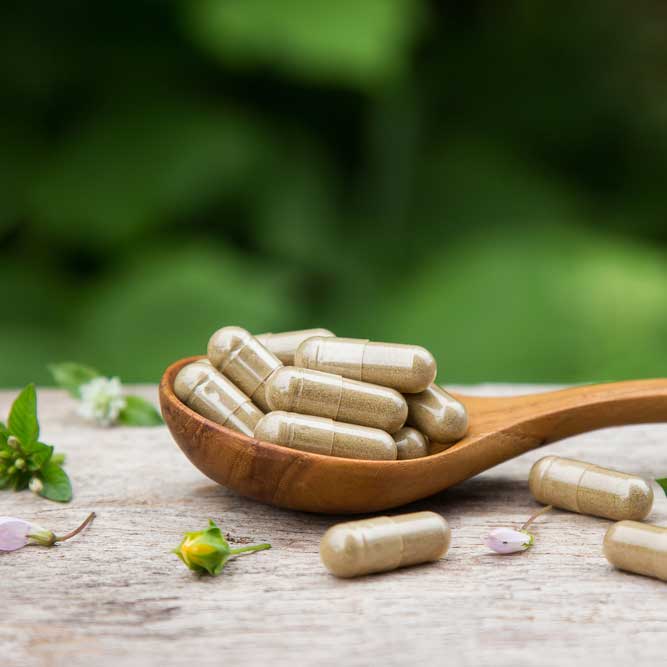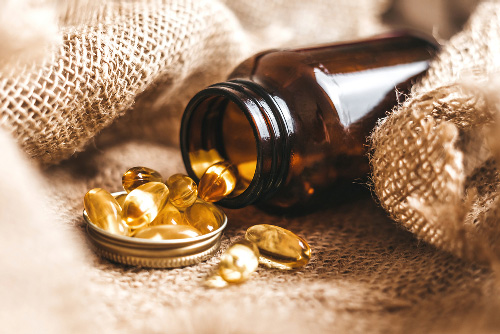CBDsoftgels Vs Capsules [ Update In 2025 ]

Many Forms of CBD Supplements; Which One Is Right for You?
On the market, there are hundreds of CBD items. There's a CBD product for everybody, from beverages to topicals to oil to all in between. It's better to use CBD at home, work, or on the go until you've found the right form. Softgels and capsules are a common way to take CBD, and more manufacturers are selling them to give customers more choices on how they use CBD on a regular basis, as per CBD softgels vs. capsules reports.
Few people are aware of the distinction between CBD softgels and CBD capsules. They're used to taking pills. It would help if you were mindful of enough variations between softgels, capsules, and CBD pills when picking a CBD product to bring to your everyday routine. Let's look at the distinctions between CBD capsules vs. softgels to see if they affect the effectiveness of your CBD regimen based on CBD softgels vs. capsule reports.
Find more about MedAims CBD Softgel by clicking on this link.

CBD Capsules Vs Softgels
What is a CBD Softgel, and how does it work? What is a CBD Capsule, exactly?
Any small container, particularly one that is circular or cylindrical, is referred to as a capsule. Capsules are two parts that combine to hold a powder, jelly, or liquid. The two exterior pieces may be the same color or different shades of the same color.
Capsules are normally flavorless and can or may not be enclosed around the edges. Probiotics are a common supplement that comes in capsule form. Omeprazole is a well-known omeprazole capsule.
What Do CBD Softgels and CBD Capsules Have in Common?
There are a few other variations between CBD capsules or softgels besides the texture:
As compared to normal capsules, softgels have a smoother appearance and contour.
Manufacturing capsules is less costly.
Many people prefer softgels over capsules because they are easier to swallow, as per CBD softgels vs. capsules reports.
Softgels are airtight and have a longer shelf life than capsules when they are sealed.
Softgels are favored over capsules for oils like CBD because they have improved nutrient retention.
Softgels are favored over capsules by customers because they are easier to swallow and hide the flavor or strong taste of the contents, based on CBD softgels vs. capsule reports.
Softgels are better for oils that aren't water-soluble, like CBD.
What is the Most Efficient CBD Dosage?
CBD tinctures are preferred by current CBD users. A tincture is a herbal extract that has been concentrated. CBD tincture is used by a large number of people. It's easy to digest, and it has a high bioavailability. Broad spectrum CBD oil in tincture form may be eaten individually, added to foods or drinks (such as your morning smoothie or latte), or taken sublingually. CBD taken under the tongue is thought to have the highest absorption rate, with ingestion coming in second.
Softgels are a good choice for those who are susceptible to flavors and want to disguise the fresh, green taste of hemp oil. They are more comfortable to take with you while driving or on the go because they are convenient, stable, and mess-free. As compared to CBD tinctures, they're less sticky and have more precise dosing. When you take CBD oil with a dropper, you'll also get less strange looks from people who don't understand what you're doing.
When taking CBD as a softgel, it can take longer to experience the benefits than when taking it under the tongue. In the digestive tract, CBD softgels and capsules take longer to process. The first-pass effect is what it's called. The efficacy of CBD absorption in the human body is also reduced as a result of this.
What Is the Most Efficient CBD Dosage?
CBD tinctures are preferred by current CBD users. A tincture is a herbal extract that has been concentrated. CBD tincture is used by a large number of people. It's easy to digest, and it has a high bioavailability. Broad-spectrum CBD oil in tincture form may be eaten individually, added to foods or drinks (such as your morning smoothie or latte), or taken sublingually. CBD taken under the tongue is thought to have the highest absorption rate, with ingestion coming in second.
Softgels are a good choice for those susceptible to flavors and want to disguise hemp oil's fresh, green taste. They are more comfortable to take with you while driving or on the go because they are convenient, stable, and mess-free. Compared to CBD tinctures, they're less sticky and have more precise dosing. When you take CBD oil with a dropper, you'll also get less strange looks from people who don't understand what you're doing.
Taking CBD as a softgel can take longer to experience the benefits than when taking it under the tongue. CBD softgels and capsules take longer to process in the digestive tract, as per CBD capsules vs. softgels reports. The first-pass effect is what it's called. The efficacy of CBD absorption in the human body is also reduced as a result of this.
When It Comes to CBD Capsules or Softgels, What Do We Highly Suggest?
Since everybody is different, we suggest using CBD oil in the most effective way for you. Softgels are favored by certain people over tinctures because they are smoother on the body. We recommend that you adhere to the approach that works well for you, based on CBD softgels vs. capsule reports. It could take a few different CBD items before you find the best fit and dose for your body.
It's a basic form of consumption.
It's very discreet to use.
There is no odor.
Servings that have been pre-measured.
What Are CBD Capsules and How Do They Work?
CBD capsules have an easily familiar format that makes them look just like the other vitamin in your drawer. The only distinction between the two is that CBD capsules are split into equivalent doses and stored inside a gel capsule after removal.
CBD Capsules are a type of CBD oil that comes in capsule form. Dosage is no longer a guessing game.
Many people like the capsule style because it allows for more accurate dose control than CBD oils, as per CBD capsules or softgels vs. CBD oil reports. When reading the label on a CBD capsule container, the number of active ingredients per capsule will always be stated. On the other hand, even with the eye-dropper, on-hand doses of CBD oils are much more susceptible to human error, based on CBD capsules or softgels vs. CBD oil reports.
CBD Capsules Are Simpler to Use.
CBD capsules have the apparent advantage of being easier to ship than CBD oils, and they can never leak or leave sticky marks on your surfaces or clothing, as per CBD capsules or softgels vs. CBD oil reports. CBD capsules should be carried anywhere without the risk of an accident. It would be best if you only took a handful with you rather than lugging around a whole container, based on CBD capsules or softgels vs. CBD oil reports.
For more information about Best CBD Softgels, read this.
CBD Capsules Are a More Discrete Type of CBD.
It's much simpler to pop a CBD capsule in your mouth somewhere than it is to find a convenient way to consume oils on the go or in public while you're taking CBD during the day, as per CBD capsules vs. softgels reports. CBD capsules are much more discreet than CBD liquids and should be swallowed rather than kept under the tongue.
CBD capsules are tasteless and have no texture.
Texture and taste are never an issue with CBD capsules.

Are Softgels Better than Capsules?
Capsules generally take longer to take effect than softgels, based on CBD softgels vs. capsule reports. Softgels are simple to digest, and the nutrients are swiftly distributed to various body parts. Softgels have no flavor since the contents are totally sealed within, as per CBD capsules vs. softgels reports. The flavor of certain capsules could be unpleasant. Softgels may be superior for the product's long-term quality and stability, depending on the product or formulation, based on CBD softgels vs. capsule reports. Softgels are popular among consumers who have trouble swallowing capsules.
Additionally, because these extractions are available in oil-based form, softgels are more likely to include complete, or broad-spectrum CBD than pure CBD isolate, as per CBD capsules vs. softgels reports. Although it is feasible to create full-spectrum hemp capsules, it is more difficult than with softgels. As a result of its full enclosure and airtightness, softgels have a longer shelf life than capsules, based on CBD capsules vs. softgels reports.
CBD softgels and capsules are pretty comparable. They may both include one of three different kinds of CBD extract, first and foremost, as per CBD capsules vs. softgels reports. Softgels include CBD oil encased in a one-piece dissoluble soft gelatin container. At the same time, capsules contain raw CBD powder enclosed in a two-piece hard dissoluble container, based on CBD capsules vs. softgels reports. The side effects of CBD softgels and capsules are often minor and vary from person to person. Both capsules and softgels have the same shell materials, have a similar appearance, no taste, and are administered in the same manner, as per CBD capsules vs. softgels reports. They likewise begin to function after a comparable amount of time. There isn't a "best" answer to this problem. Each consuming strategy has its pros, limitations, and rewards.
Let's compare CBD capsules or softgels vs. CBD oil side by side so you can make an educated choice. The same hemp extract and carrier oil are present in CBD capsules; however, unlike CBD oil, this product has no taste or odor, based on CBD capsules or softgels vs. CBD oil reports. The soft gel shell that protects the capsules makes swallowing them simpler. Additionally, the onset of CBD capsules is delayed compared to CBD oil since they are consumed, as per CBD capsules or softgels vs. CBD oil reports.
For those who want a tasteless and odorless choice, CBD capsules and softgels are a well-liked substitute for CBD oil, according to Medaims Reviews. Both CBD oil and capsules contain the same hemp extract and carrier oil, but the capsule's outer shell makes it simpler to take, especially for people who might find CBD oil's flavor or texture unpleasant.





